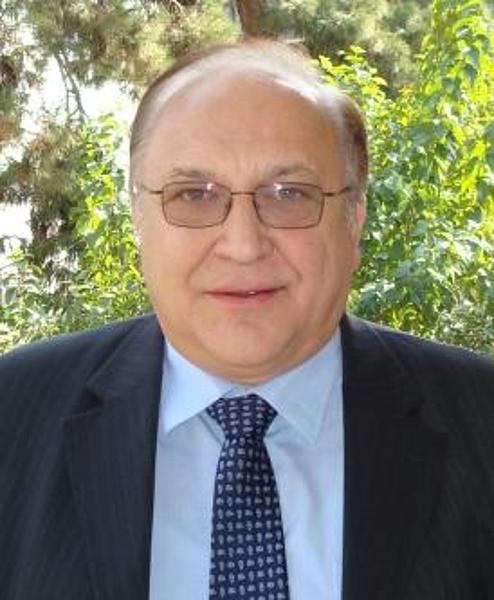The state-owned company at the center of European efforts to save the Iran nuclear deal is entering its next phase of development. In a push to process transactions more quickly, INSTEX is rolling out a new factoring service for European exporters. The company is also making new hires that will enable it to expand operations in the coming year.
Having reached the end of his six-month contract, Per Fischer is stepping down as the president of INSTEX, the state-owned company established by France, Germany, and the United Kingdom to support trade with Iran. Fischer’s replacement is former German ambassador to Iran Bernd Erbel. A career diplomat, Erbel has been posted in Lebanon, Saudi Arabia, and Egypt, and served as ambassador to Iraq prior to his stint as ambassador to Iran, Bourse and Bazaar reports.

The change in leadership comes as INSTEX finalizes several other management hires. By filling these roles, INSTEX will enter a new phase of operation as a standalone company based in Paris. Until now, both INSTEX’s outreach to European companies and its coordination with its Iranian counterpart, STFI, has been led by civil servants at the foreign and economy ministries of the company’s three founding shareholders.
Fischer, a former Commerzbank executive, had been selected as the company’s first president due to his banking background. But Erbel, who lacks commercial experience, will have a different mission as he assumes his leadership role. Erbel will leave key commercial responsibilities to the new managers, focusing instead on ensuring a constructive working relationship between INSTEX and STFI. In recent weeks, cooperation between the two entities has slowed. Iranian authorities have called for INSTEX to be funded by Iran’s oil revenues—a move that would leave INSTEX vulnerable to sanctions from the United States.
Erbel’s deep knowledge of Iran may help him navigate the tensions surrounding the INSTEX project in Tehran and reassure Iranian stakeholders of the seriousness of European efforts to develop the mechanism further.
The goal for INSTEX remains to ease Europe-Iran trade by developing a netting mechanism that eliminates the need for a cross-border financial transactions. In this model, INSTEX will coordinate payment instructions between companies engaged in bilateral trade between Europe and Iran, enabling European exporters to receive payment for sales to Iran from funds that are already within Europe. The counterpart entity, STFI, will then mirror those transactions, allowing Iranian exporters to get paid with funds already in Iran.
Delayed by political disagreements, INSTEX and STFI remain in the process of establishing the netting mechanism. But in a bid to fast-track transactions, INSTEX has opted to roll out a new service that does not require the direct participation of its Iranian counterpart. INSTEX is now in advanced negotiations to a provide factoring service to an initial cohort of European companies.
In factoring transactions, INSTEX will purchase the expired invoices of European exporters who have failed to receive payment for sanctions-exempt goods sold to Iran. The focus on expired invoices allows INSTEX to avoid lengthy French regulatory approvals for a full factoring service. Importantly, INSTEX will not require the goods in question to have been delivered to the Iranian buyer in order for the European exporter to factor its receivables. In this sense, the service approximates a kind of trade finance.
According to a draft contract between INSTEX and a European company seen by Bourse & Bazaar, the purchase price paid to the European exporter by INSTEX would amount to 95 percent of the “assigned receivable.” In other words, INSTEX will charge a 5 percent fee as part of its factoring service. This fee will vary based on the transaction.
Such costs are not negligible for European exporters, especially when considering that INSTEX will require each transaction to undergo third-party due diligence at the exporter’s expense. Yet they are commensurate with the transaction fees typically charged by banks in those cases in which the bank is willing to accept funds originating in Iran. Moreover, for European companies burdened with unpaid invoices, the certainty of payment from INSTEX, a state-owned European company, is inherently attractive.
In some respects, the factoring service is a more appealing solution for companies than the netting mechanism service which INSTEX still intends to operationalize. However, factoring is inherently less scalable as it requires significant capital to be made available to INSTEX in order purchase invoices. INSTEX will also assume the burden of seeking payment from the Iranian debtor.
However, should the factoring solution prove popular, it may be the case that INSTEX could subsequently transfer its newly assigned receivables to STFI, making it possible for Iranian importers to pay STFI for goods purchased from European exporters. Alternatively, INSTEX could open an account either in Iran or at the Iranian bank branch based in Europe in order to receive payment for the outstanding invoices. While conceived as a stopgap solution, the experience with factoring could help INSTEX develop a more robust netting mechanism.
As it welcomes new leadership and pivots to a new service, INSTEX resembles any ordinary startup at a key stage of its development. Like all startups, INSTEX continues to face many hurdles—its success is far from assured, particularly in the darkening political climate. But the individuals responsible for its development are responding to pressure from demanding shareholders and skeptical customers with creative solutions—an encouraging sign.